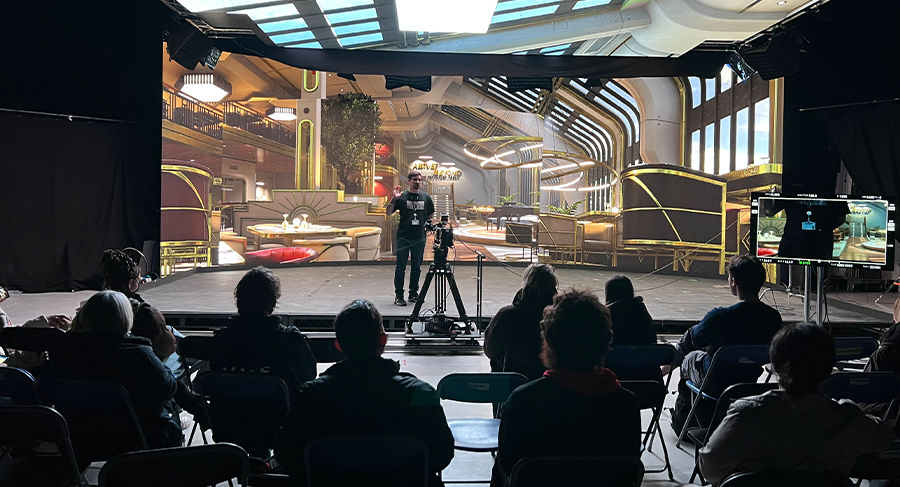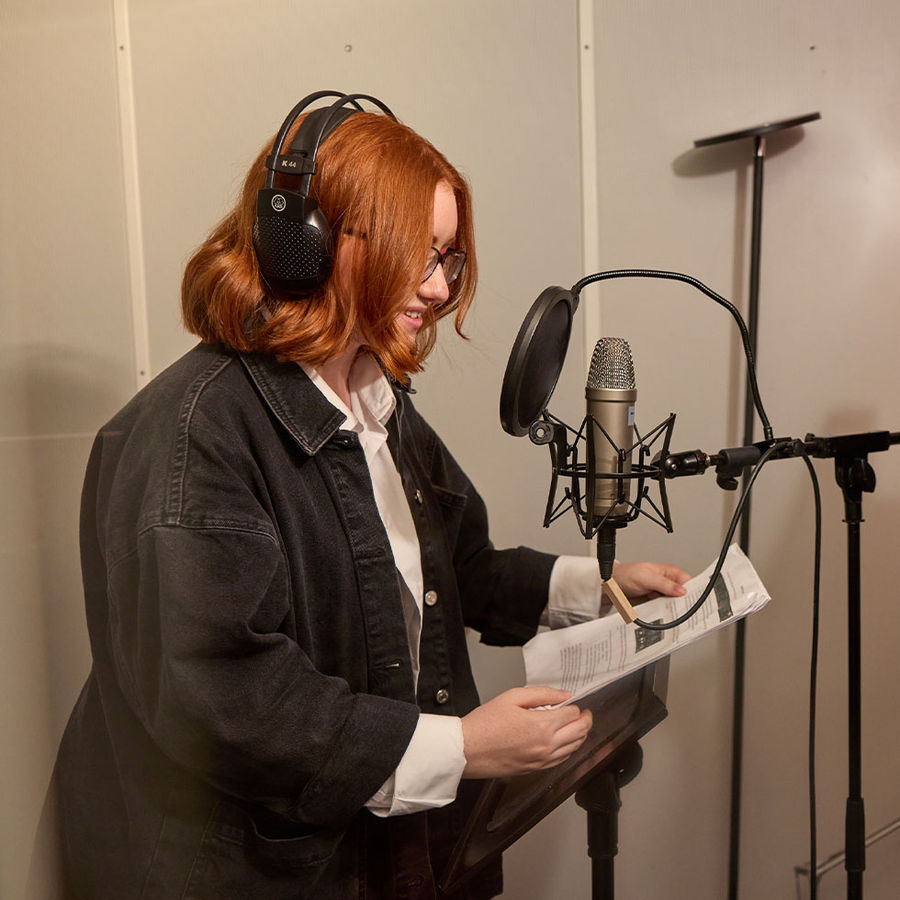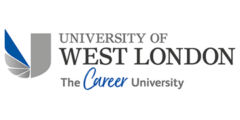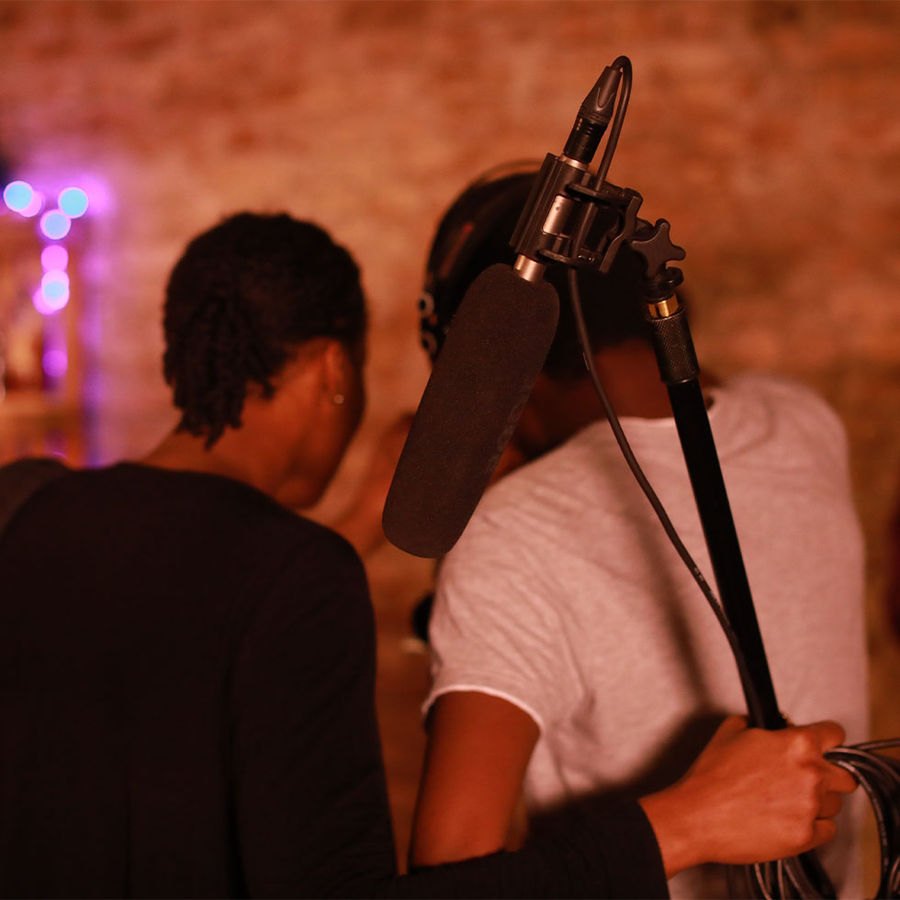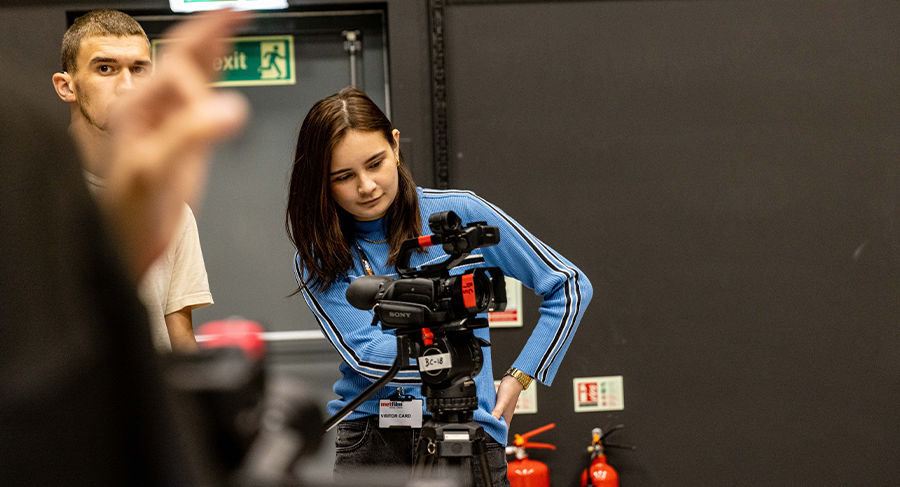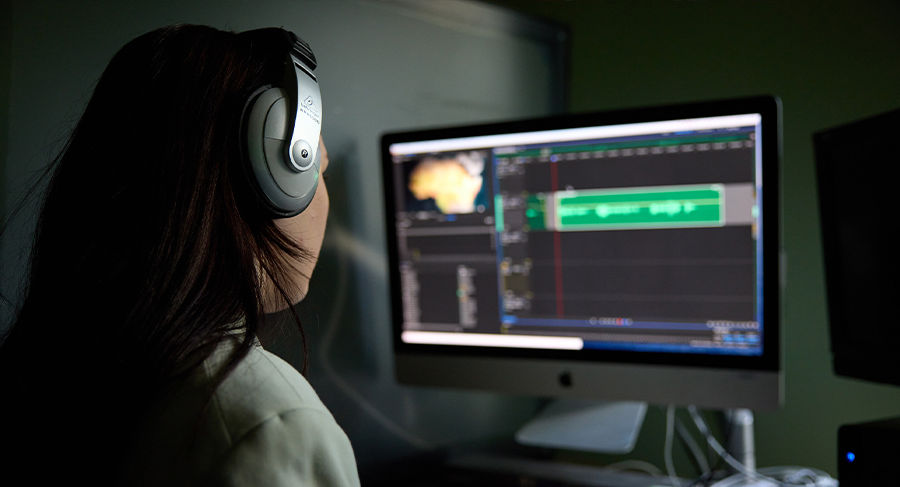At Level 4, you will engage in six modules designed to give all students on the programme a basis in the fundamentals of story, and the ability to produce film and screen content. You will also gain an introduction to each of the specialist pathways: Visual Effects, Post Production, Virtual Production, and your chosen pathway, Sound.
In the first semester, you will gain a practical and contextual understanding of storytelling on screen; film and screen production; and editing.
In the second semester, you will gain an introduction to each of the specialisms – with each module including both practical and contextual elements. In parallel, you will work in groups to produce short films which bring your learning across the level to a conclusion.
Having confirmed your specialist pathway at the end of Level 4, you will spend much of your second year working within your pathway, Sound, with skills development, practical exercises, and theory in each semester.
In the first semester, you will immerse yourself in the field of Sound, and develop your understanding, knowledge, and skills in this area. In parallel, you will engage in comparative storytelling and narrative across all screen types, across the world, and over time. You will also develop your research skills and contextual understanding.
In the second semester, you will continue to develop your craft skills in Sound, learning further skills through project-based work. You will also be introduced to the business of film, television, and screen content, and develop your skills in: project management; professional practice; legal and financial skills; market and audience engagement; and research in practice.
In the first semester, you will continue to develop more advanced and applied skills towards Sound. In parallel, a common module allows you to think together with students on other pathways, and to collaborate in developing your graduation projects.
You will also build your professional understanding of applications of digital film practice in the industry; explore roles and careers open to you; look at changing technology in film; and learn how to operate as a freelancer.
In the second semester, you will work on your graduation projects, which will be a collaborative or individual project to showcase your digital film practice. You will also develop your career plans, and manage your portfolio.
Across the three years of the programme, you will progressively learn and build your knowledge, skills, and understanding of sound capture and post production for film, television, and screen content creation.
You will learn through focused tuition and project-based application, including sound engineering; sound design and its role in storytelling; ADR, foley, and sound capture; dialogue editing; recording, editing, and producing soundtracks; mixing; dubbing; project management and completion.
In your final year, you will work together with those on your pathway, as well as the wider undergraduate cohort, on a collaborative or independent Graduation Project, giving you an opportunity to showcase your skills and understanding of sound capture.
We include a diverse range of teaching methods which include:
- seminars in smaller groups;
- small group tutorials;
- practical group work;
- formative feedback through critiques/screening and reflective sessions;
- skills Labs – a reflection of ‘real world’ experiences; and
- enhancement activities.
We use a wide range of assessment which include portfolios, performances, research, presentations, and reflective work.
